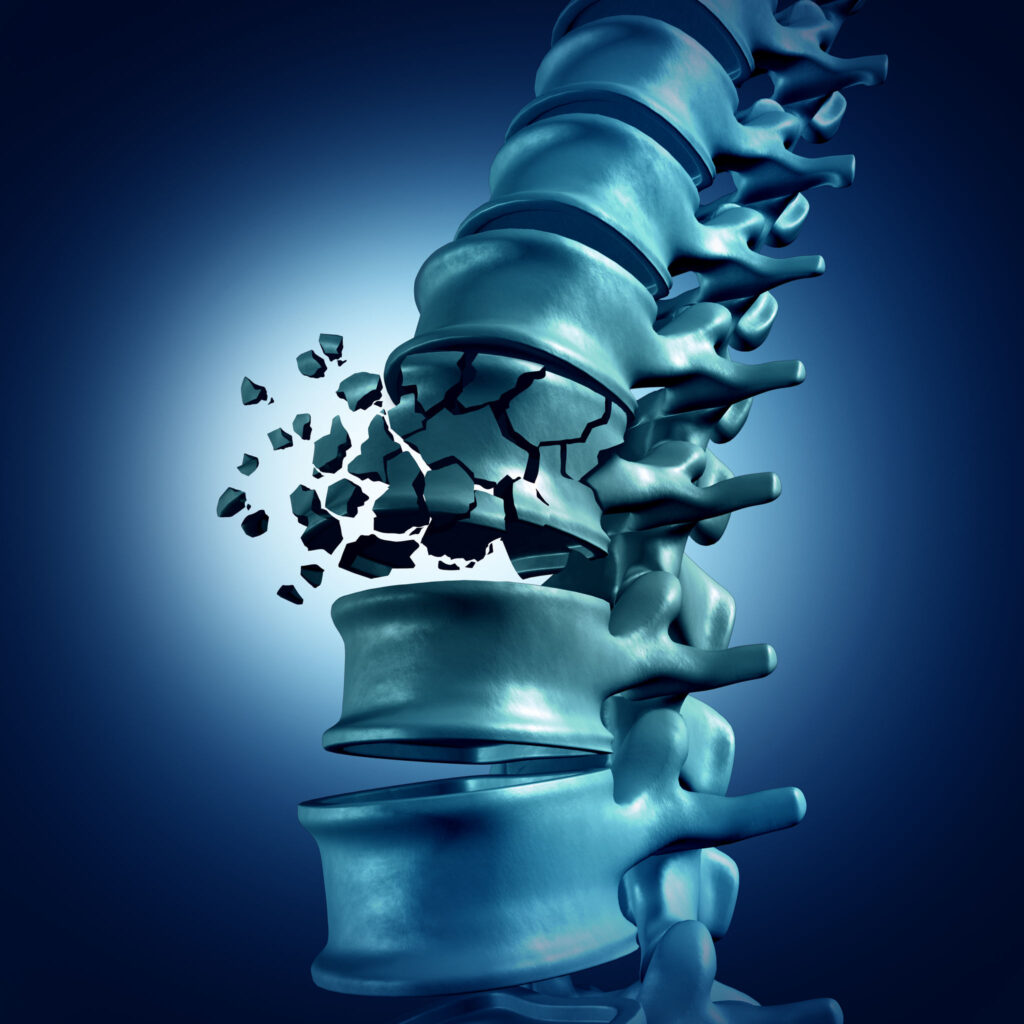Spinal Cord Injury Lawyers Nashville

Spinal cord injuries are some of the most devastating injuries a person could suffer. From mild conditions such as whiplash to severe to life-changing conditions such as paralysis, spinal cord injuries are a serious matter of discussion.
Were you hurt in a wreck? Our spinal cord injury lawyers at Lerner and Rowe are here for you any time of the day or night. Let our well informed legal team use our knowledge of spinal cord injury characteristics, causes, and surrounding legal subject matters to help you fight for the compensation you deserve.
What Is a Spinal Cord Injury?
The spinal cord runs downward from the base of the neck to the tailbone. A spinal cord injury occurs when any part of the spinal cord (within the surrounding vertebrae) suffers damage or becomes severed. The higher the spinal cord injury, generally speaking, the more severe the injury will be.
Injury in the neck vertebrae (C1–C7) are called cervical injuries. Injuries to this part of the spinal cord can result in loss of function in the arms, hands, legs, feet, neck, and generally, anything below the point of injury. If serious enough, a loss of involuntary functions may occur, leaving the victim dependent on ventilators and pacemakers to maintain breathing, blood pressure, and circulation.
Thoracic injuries (T1–T12) occur in the middle area of the spine near the chest and abdominal area. Damage to this part of the spine can result in loss of function in the hands and arms, loss of balance, poor abdominal control, and poor hip and leg flexibility.
Lumbar injuries (L1–L5) and sacral injuries (S1–S5) occur near the bottom of the spinal column and generally result in the loss of some function of hip/leg movement. Additional complications can include bladder/bowel problems, pneumonia, chronic pain, and other conditions.
Further, there are also two different variants of a spinal cord injury: complete and incomplete.
- Complete–A complete spinal cord injury results in no sensory perception or motor function below the point of injury.
- Incomplete–An incomplete spinal cord injury means a person may have some partial sensory perception and partial motor function at and below the affected area.
What Are the Causes of Spinal Injuries?
Spinal cord injuries can occur because of a variety of reasons. Here are some of the most common causes of spinal cord injuries:
- Acts of Violence – Being physically attacked can certainly lead to serious injuries of all kinds, not excluding spinal cord injuries. Regardless of whether a weapon is used, a person can inflict some serious damage to all parts of the body, the spinal cord included.
- Slip and Falls – Some may think that slipping and falling may not do very much damage. This is an unfortunate misconception. In fact, slipping and falling even once can permanently alter a person’s life. Slipping and falling in just the right way could do serious spinal cord injury. The risk of slipping and falling may increase when you are in an unfamiliar environment, or when there is a slippery substance you’re unaware of on the floor.
- Automobile Accidents – Getting in a car crash can lead to serious spinal cord injuries, among other complications. A person may experience nothing more harmful than whiplash, or they may become paralyzed for life. The degree of the injury often depends on the severity of the car crash, and even then, it’s not always easy to tell the extent of the damage right away.
What Are the Symptoms and Complications?
Spinal cord injuries present symptoms and complications in many different ways. Some symptoms may be obvious, while others may be more subtle. Some complications may be only mildly uncomfortable, while others can be painful and life-altering. Here’s a broad look at such symptoms and complications:
- A lowered or extinguished motor function ability
- Numbness or inability to distinguish temperature (e.g. cannot feel heat or cold)
- Altered or loss of bladder/bowel control
- Tough time breathing
- Coughing, especially when involving lung secretions
- Altered or loss of balance
- Weakness or paralysis in any part of the body
How Can a Spinal Cord Injury Lawyer Help?
If you or someone you love suffered a spinal injury, contact Lerner and Rowe Injury Attorneys to speak with a knowledgeable spinal cord injury lawyer in Nashville. Our legal team is prepared to go to battle on your behalf so that you can focus on recovering. Here are some ways we can help:
- Gather Evidence–Your pain and suffering is stressful enough as it is, and you shouldn’t have to worry about gathering evidence for your personal injury case. Our team of professionals works tirelessly to gather evidence and bolster your case to ensure the maximum amount of allowable compensation.
- Negotiate–Insurance companies can be a pain to deal with, and they often won’t want to give you a fair amount. We know how to get insurance companies to pay top dollar for your pain and suffering.
- Represent You–Whether it’s in or out of the courtroom, we’ve always got your back when you need us. Focus on recuperating from your injuries while we focus on your legal concerns. We know the laws inside and out, so you can trust that your personal injury case is in good hands.
Need a Spinal Cord Injury Lawyer in Nashville?
If you wish to speak with a spinal cord injury lawyer in Nashville, contact Lerner and Rowe Injury Attorneys. Our legal team works around the clock. Just make one call to (615) 333-8888. You can also visit us in person, Monday through Friday from 8:00 a.m. to 5:00 p.m. Additionally, you can reach us online via a cnotact form or through our LiveChat feature. Consultations are free, and we don’t collect a penny until we win your case. Don’t hesitate; contact us today!



